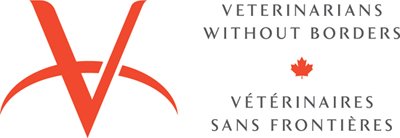Today we essentially finished our contribution to the clostridial vaccination as the second (booster) round is done. In addition to vaccinating, we have been taking blood samples for Brucellosis testing and distributing seeds. Each beneficiary received a mixed package of fruit and vegetable seeds including, cabbage, carrot, dodo, tomato, swiss chard, and papaya. We also handed out two species of forage trees for goats, to improve future feeding… Funny how human health and animal health is almost identical… You get out what you put in.
Today, we tackled one of the largest parishes and went around in three separate teams even though we only had 2 vets. One of the paravets was so competent last time, that we sent that one out alone to complete some vaccinations. This paravet is HIV positive and hasn’t been well lately. When I asked that paravet how s/he was feeling, a “comme ci comme ca” impression was given. Minutes later, we went to the local drug store where one of our beneficiaries was flat out on an IV quinine drip for malaria and very ill. All around us are reasons why people don’t live to the ripe old age of 70 something that Canadians enjoy. Instead, here, survival is a challenge physically, mentally and biologically. Impermance is a reality that we all must come to accept at some point in our lives, whether we are religious or not.
Francis and I finished our section early and went to his birthplace (in Kasaana where we were) where a “give away” party was being cleaned up. A bride was given away as property, as they have been for a long time. I sat down with the locals in Francis’ uncle’s house and greeted them in Runyankore and they thought I could speak their language briefly. After eating some cow’s hoof and matoke, discussions broke out. One young man asked me for a job and I told him that I could provide no job, but one idea is to get his hands on a device that can squeeze the juice out of sugar cane… Coca cola seems to be the only one capitalizing on that here and now. Then, I asked the men (women busy working) about their thoughts on drinking goat’s milk, as I knew this was a touchy topic. Some laughed, but after the young man, which I’d previously discussed it with went off listing reasons, they listened quietly in a drunken daze. Some benefits of having dairy goats are that people on small farms (most Ugandans) can raise a dairy goat with their land’s productivity whereas, they couldn’t a cow. Goats can handle dry conditions better and can eat a wider variety of food… The milk is just as nutritious as cows’ milk and they are easier/safer to handle. As I mentioned, these men were drunk and likely contribute little to the farm most days. It seems overwhelmingly true that in general, the women do the work here. Of course, there are exceptions.
Nemesis Overpopulation
Yesterday in Kitooha I was driving some of our paravets towards the next beneficiaries house and I asked them some questions to gain an understanding of the local mentality. I asked, “What do you think will happen if each woman continues to have 10 children each?” They replied that everyone would be more impoverished. I then asked how many children they each want to have and their answer was as many as possible. Francis described the Kasaana parish to me as it was when he was a child, as a jungle with few people and buildings in good shape . Now the landscape is dominated by matoke plantations and grass hilltops for grazing. Essentially, the only standing trees are for fruits or fire. What is the carrying capacity of this land and what future do these people have if their goals are to have as many children as possible?
They described how a man will leave a woman for another if she doesn’t produce many, many children. There are many underlying social norms that drive the culture here and only as we finish our time here are we beginning to understand the complexity.

Vets Without Borders with Hilda (Ugandan), Global Vets and of course Max the dog at FAOC.

No comments:
Post a Comment